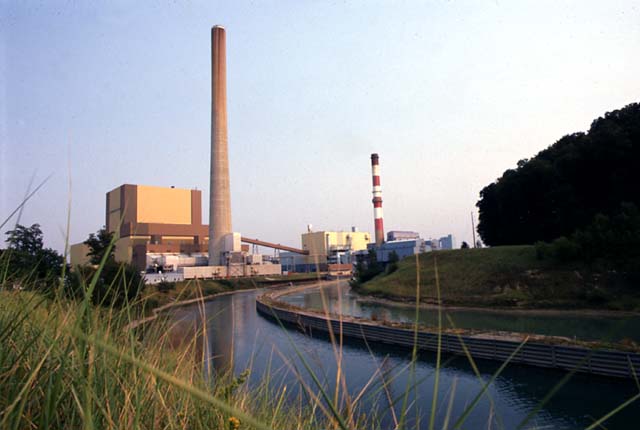It is possible to do some of these steps and not others, but we recommend all of them, especially if Consumers Energy (CE) and its regulator Michigan Public Service Commission (MPSC) do not agree of themselves to delay closure of the Campbell after Ottawa County requests them to do so. Many of these steps should be worked on concurrently.
Step 1: Ottawa County township boards and county board pass a resolution to delay the closure of the Campbell, and submit such request to MPSC and CE. (Hopefully MPSC and Consumers Energy will agree to delay closure in response to such resolution alone, but in all likelihood they will not.)
Step 2: Ottawa County township and county boards pass a resolution citing violation of the Trump Administration National Energy Emergency executive order and let an AI data center locate near the Campbell plant and utilize its reliable electric along with other customers, but at significantly higher rates, so that the rates of Consumers Energy customers can come down and be closer to the rates customers of municipalized electric in Ottawa County enjoy. The county board should intervene regarding electric pricing, in addition to service. Closing the Campbell will drive up prices that are already ridiculously high for Consumers customers in the county. (It should be emphasized that this does not mean Washington, DC should control Ottawa County energy plans, any more than Lansing should. We need an energy plan that is in the best interest of Ottawa County led by Ottawa County.)
Step 3: Seek the assistance of the Trump Administration (especially new Secretaries Doug Burgum and Chris Wright, who lead the new National Energy Dominance Council), along with our local representatives in Washington like Rep. Bill Huizenga, to intervene on behalf of the Campbell plant consistent with the National Energy Emergency executive order. The National Energy Dominance Council leaders appear to be fully on board with the “Save The Campbell” objectives. We need their assistance to stop the current MPSC/Consumers Energy violation of the executive order given their continued plan to close the Campbell in May/June 2025.
Step 4: Ottawa County Board pass a public safety ordinance prohibiting the closure of the Campbell plant in 2025, consistent with Article VII, § 15 of the Michigan Constitution allowing the County Board legally to intervene when a privately owned public utility is engaged in activities which endanger electric service. Township boards should petition the county board to pass such a public safety ordinance.
Step 5: Form an electric coop exploratory committee of Ottawa County townships currently without municipalized electric (or at least those which are without it currently but would like to move towards having it) and begin discussing with relevant parties (the Ottawa County Board, municipalized electric entities in the County, Wolverine Power, Hoosier Energy, the MMEA, etc.), along with the Trump Administration, the possibility of purchasing Consumers Energy’s interest in the Campbell and having a service contract with Consumers Energy for a certain term to run the Campbell. Such a purchase could pursue the objective of Trump’s National Energy Council not only to secure a reliable grid, but also to generate surplus electric to empower regional AI data centers, and to make sure to do so in an environmentally responsible manner.
Step 6: Ottawa County township boards (via the electric coop exploratory committee of Step 5) and county board discuss with Wolverine Power the possibility of joining Wolverine Power in litigation against Consumers Energy over their precipitous and ill advised planned 2025 closure and demolition of the Campbell. This should include filing for a court order to delay the closure of the Campbell. There is a strong case to be made, because grid operator MISO recommends delay of plant closures under current grid circumstances, and the North American Electric Reliability Corporation (NERC) does as well. Michigan law recognizes the need for closure delay when the grid is endangered. Such legal action would be consistent with Article VII, § 15 of the Michigan Constitution allowing the County Board legally to intervene when a privately owned public utility is engaged in activities which endanger electric service.
Step 7: Pursue a home rule county charter for Ottawa County for a certain trial period which would facilitate the County’s ability to prevent the Campbell’s premature closure/demolition, along with the possibility of facilitating the purchase of Consumers Energy’s interest in the Campbell plant. An example draft charter based on Macomb County’s is provided here. The township boards can petition the county board to initiate a charter county question so county voters can decide.
Step 8: Encourage state legislators to amend Michigan law not to discriminate against environmentally responsible use of coal for electric generation so as to place it on a firmer legal basis long term.
